What apps can our 2-year-old use? An algorithmic approach

There is something ironic about the fact that on Earth the truly wealthy get to divest themselves of modernity and live simple reverted lives as hunter-gatherers while the rest of us scurry around fixing and fine-tuning the myriad complexities of the modern world that lets them do it.
-Richard Morgan in Thin Air (2018)
In his novel Thin Air, science fiction writer Richard Morgan explores a world where the ultra-rich grow up in prehistoric tribes and spend their time hunting and learning about problem-solving, leadership and storytelling (by a camp fire). In this future Earth (and Mars), the masses are left to actually run the system in technologically advanced cities - presumably keeping busy with ad-driven free-to-play games and (hopefully not) project-management spreadsheets.

This ideal of a tech-free childhood does sound a bit extreme. Besides, you definitely don't need to be wealthy in order to try it out (a one-way ticket to the Amazon would suffice). This is definitely not what we do ourselves, nor do we believe that growing up in a hunter-gatherer tribe is the optimal way to teach kids how to live a fulfilling life!
In saying that, it's hard to deny that excessive use of technology can replace real interactions with people and the environment around you. From that perspective, early on when our son was born, my partner and I discussed how we wanted to introduce technology and what role it would be playing in his early years. The "algorithm" or decision-making framework outlined in this article is what we came up with.
Keep what suits, discard what doesn't
My goal with this article is not to judge or to lecture anyone about the impacts of technology in children. On the contrary - I'm super interested in hearing how other people are doing this, and I respectfully acknowledge the fact that every child and family circumstances are completely different!
The other important caveat is that this framework is aimed at a 2-year old and might not be suitable for older children. We will most likely be making lots adjustments over time! If you are interested in keeping up with the changes you can subscribe to my newsletter The Soy Flat White here.
What is technology for, anyway?
People who live and breathe technology such as myself (I've been coding and building digital products since the 90's) can easily forget that technology is not only a toy, but that it is meant to provide specific outcomes to society.
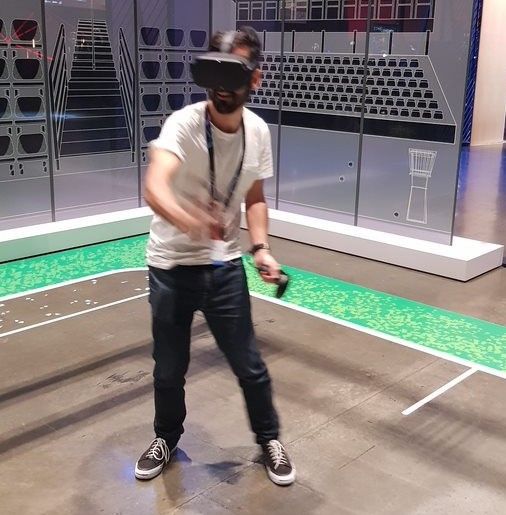
When it comes to the upbringing of our son, we discussed what the purpose of technology was when it came to the enrichment of his early childhood. This process allowed us to decide that we'd be using technology to provide him with opportunities for:
- Meaningful communication with relatives
- Creativity and self-expression
- Learning real-world skills that are age-relevant
This was purely a judgement call from our end as parents - you might come up with something totally different if you do the same exercise. The review and discussion itself is what's the most valuable, as it will quickly highlight what's the most important and relevant to your particular circumstances.
Having these concrete outcomes gave us a broad filter to reject non-useful apps and activities.
There was a problem though. There were several apps that could be presented in a way that satisfied all-three conditions, but that we still didn't think that they were appropriate for other reasons. Some examples of such activities included:
- Social media
- Passive consumption of educational video content
- Educational video games and eBooks
Adding a rejection criteria
In order to improve our framework, we needed to add explicit rejection criteria for what we deemed as non-appropriate for our son. Once again, it's important to emphasize the point that these rules are what works for us, and that not everyone will share our views.
The following features are "strong no's" for us for the time being. If an app includes any of this, it's an instant rejection:
- AI-driven engagement loops
- Social media
- Passive video consumption
- Activities that can be easily done without technology
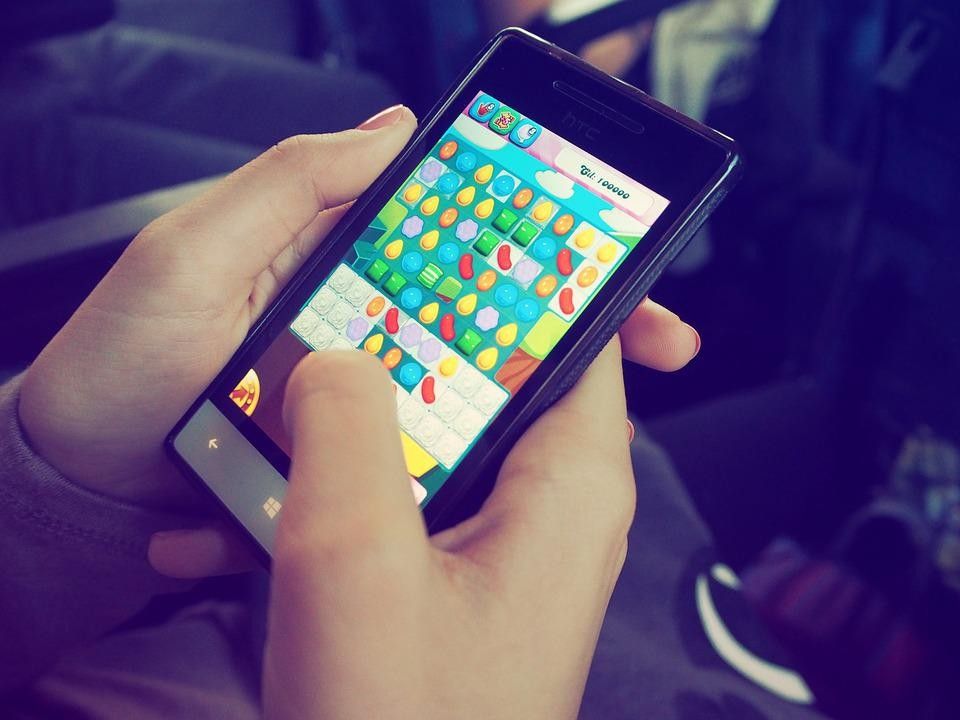
Framework summary
Putting it all together, this is what our decision-making framework looks like:
- Does the app fall within the strong-no list? As a developer and tech entrepreneur, I'm well aware of the metrics that drive the design and updates of algorithmic feeds and engagement loops, and have opted not to include those apps for the foreseeable future.
- Does it fall within the objectives? Does the app allow for either meaningful communication, creativity & self-expression, or learning opportunity for real-world skills?
- Can it be done without technology? If an activity can be done without technology, we opt for that approach.
- Is it relevant to his developmental stage? This is the most subjective of the criteria, as it relies entirely on our gut feeling as parents. There are apps that satisfy all conditions, but that just don't feel age-appropriate just yet. For instance, taking photos or videos - that does allow creativity and they are also extremely useful real-world skills.
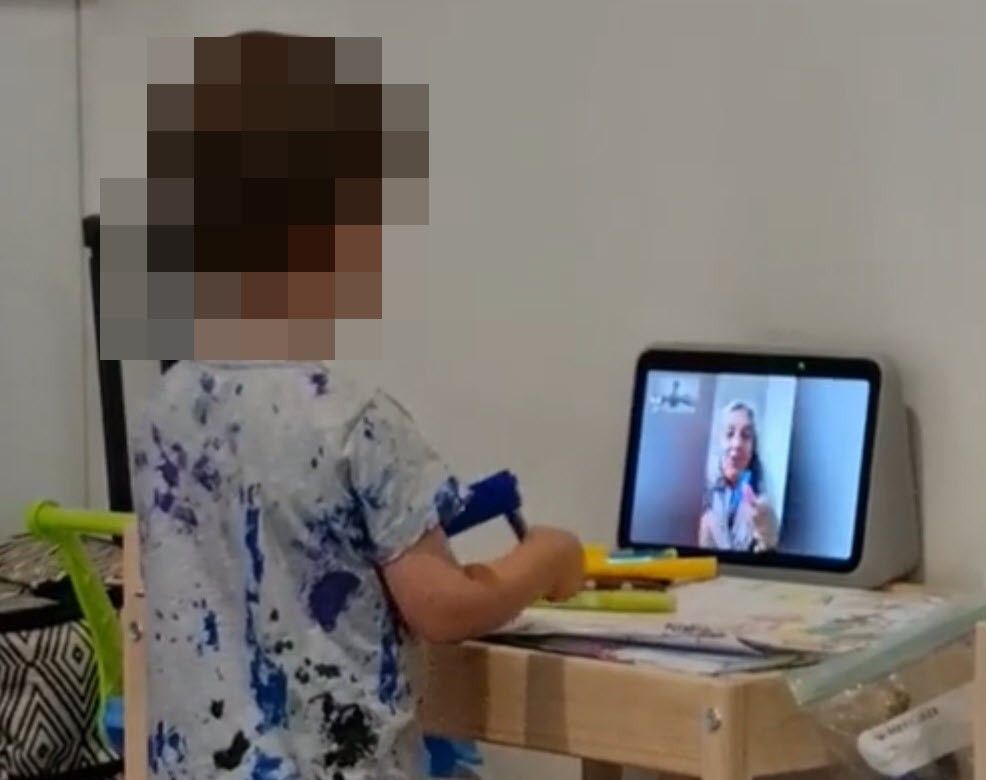
Framework application examples
1) Video calls with relatives who live in different cities? ✅ ALLOWED
- Provides opportunities for meaningful communication
- Cannot be done without technology
2) Video calls with people who live in the same city? ⛔ NOT ALLOWED
Can be done without technology. We do plenty of play dates and social activities. Attending day care also allows him to see his friends daily. I do acknowledge that this would have been impossible had we experienced prolonged lockdowns in Brisbane. For those reasons, we've opted to leave this out for now.
3) Playing with filters during a video call? ⛔ NOT ALLOWED
While it does fall within Creativity & Self-Expression, it's not yet relevant to his developmental stage. During a call, we think that the focus should be in building relationships with his relatives and in improving his language skills.
Alternative to filters: dressing up or putting on accessories during a video call can offer a similar opportunity for self-expression.
4) Spotify & other music apps? ✅ ALLOWED
Listening to songs, dancing and singing have helped tremendously with language development, self expression and meaningful connections with parents, relatives and friends. In saying that, we are not yet playing music videos.
5) Educational video games (e.g. pattern matching games)? ⛔ NOT ALLOWED
While some games can help with the development of real-world skills, most of the games that I've reviewed have strong engagement and monetization loops, as well a focus on extrinsic motivation to completing tasks (e.g. winning coins by getting the answer right) - all things that we want to avoid for now.
We make an effort to provide our son with plenty of opportunities to develop skills without technology via real-world activities (garbage collection, gardening, cooking), toys of various kinds (trucks, Mega Blocks / Duplos, puzzles), art activities and books.
It's important to mention that this position could change in the future if our son ever needed extra support in a specific area (e.g. numeracy) and non-screen solutions weren't working out.
6) Language games and apps? ⛔ NOT ALLOWED
We aim to provide our son with plenty opportunities to develop his language skills in both English and my first language Spanish. Through out the day, we do our best to incorporate plenty of conversation and discussion. Plus, there is all of the work done by his educators at daycare. Since we are catering for this need without technology, we've opted not to bring in such apps at this stage.
7) Drawing apps? ⛔ NOT ALLOWED
Whist certainly huge Creativity and Self-Expression potential, we are doing this without technology by incorporating drawing, painting, cutting and play dough activities.
For the time being, these tech-free activities feel like the best approach as they offer a richer (and messier) multi-sensory experience.
As our son grows, artwork apps are probably going to be some of the first apps that we'll incorporate. In particular, I find that 3D modeling is something that cannot be easily done without technology (although we are working on the foundations using blocks), and would be keen to try it out when he is ready.
8) Taking photos and videos? ⛔ NOT ALLOWED
Strictly speaking, this could satisfy all of the conditions and criteria, so this is where our judgement comes in. For our son at least, it feels like it's not yet the right time to incorporate camera usage.
For obvious reasons, there has been a lot of incidental exposure to cameras and photos. If we are showing a photo on our phone to someone else and my son wants to see it, we do let him have a look.
We have been actively printing our photo books so that he can see the photos that we've taken and talk about them.
9) Educational eBooks? ⛔ NOT ALLOWED
While certainly lots of education potential, we decided to only use physical books at this stage. Also, since my son was born I ditched the Kindle and switched back to reading physical books. In this manner, when I'm reading a book, it doesn't look the same from the outside as when I'm responding to a message or updating our shopping list.
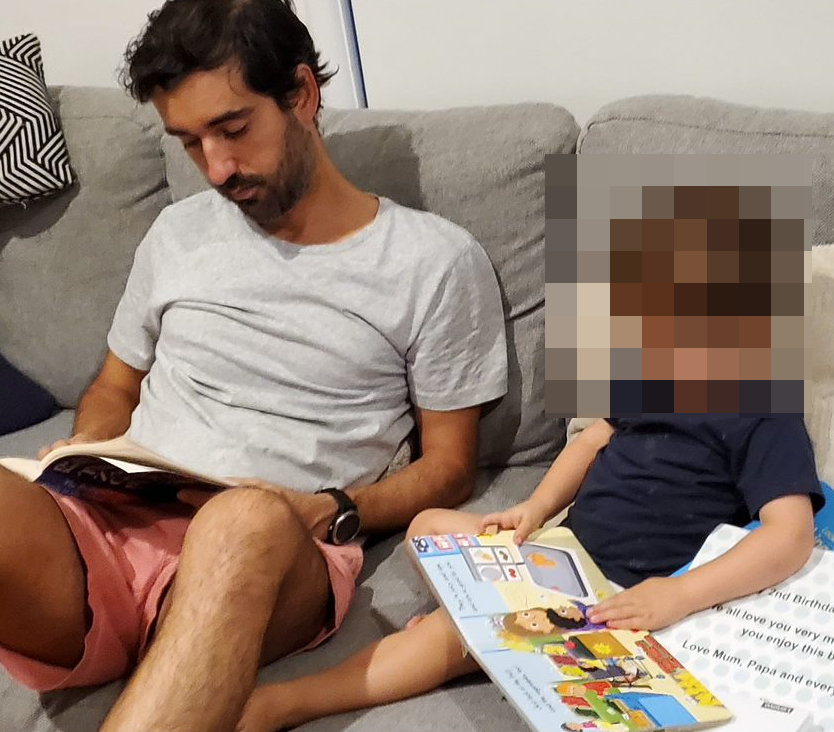
10) Google Image Search? ⛔ NOT ALLOWED
Algorithmic feeds aside, this is a no for the fact that infinite feeds contribue to making apps addictive. Have you ever reached the very bottom of the feed in ANY social media platform? Thought so :)
Another factor here is that a lot of the activities that our son undertakes are, by his own initiative, about completing something. I personally see great value in that.
Whether it's putting beads into containers (or out of them), looking at books, filling in a truck with dirt and pebbles. All of these activities have a start and an end.
While image search results in engines like DuckDuckGo and Google can provide lots of visual stimulation and prompts for discussion, the infinite nature of it is also something that I wanted to avoid. What we've done instead if printing out a few pages of Image Search and looked at those instead of the screen:
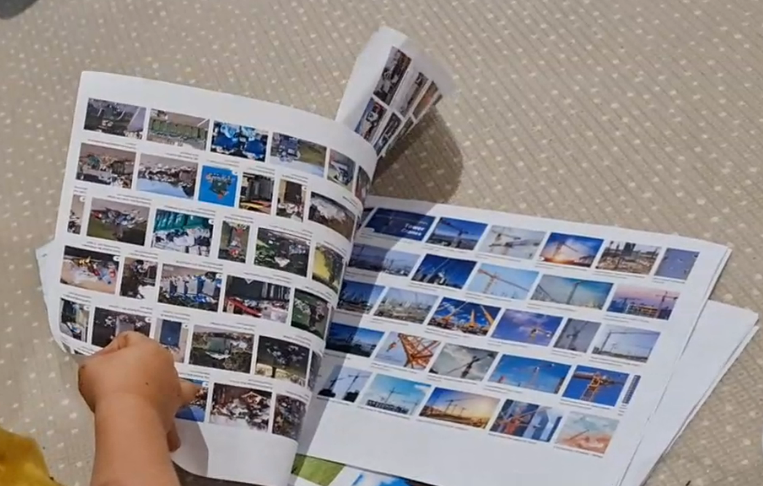
What about the fact that, whether we like it or not, we live in a world full of information feeds that are both infinite and algorithm-driven?
What we've observed so far is as our son grows, he seems to be capable of handling more and more information, as well as of exerting more and more self-control. If we had to choose, today would be a better time than yesterday, and tomorrow will probably be better than today. There will be a point when he will be ready and I think that will happen naturally.
There has also been a fair amount of incidental exposure to TVs when we are out and about, and that's fine.
We will eventually have to bring in infinite and AI-driven algorithms into his life, but when we do, our goal is to have built muscles in self-control, time management and the balance of the creation vs consumption equation.
If he is interested, I will also teach him how those algorithms work, and we can review a game and discuss all of the components of the engagement loop and what purpose they serve. Perhaps, we'll even create our own one day!
---
Did you find this interesting? Do you have any questions or comments? Feel free to post them in the comments! Also, if you'd like to receive future articles you can subscribe to my personal tech and game development newsletter The Soy Flat White here.
